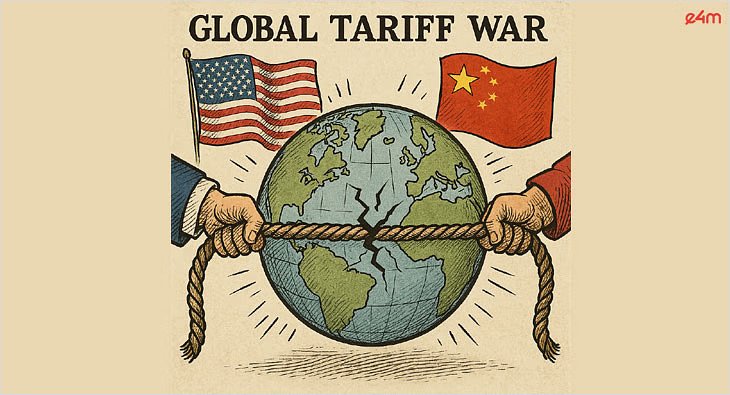ASML, a vital supplier in the global semiconductor industry, has seen its market value drop by more than $130 billion in less than a year. The key reason behind this major decline? A combination of tightened U.S. chip export restrictions to China and growing uncertainty over tariffs under the leadership of U.S. President Donald Trump.
ASML’s Market Cap Hit Hard by Export Curbs and Tariff Talk
Last July, ASML shares were flying high, trading at over €1,000 each and valuing the Dutch tech giant at around $429.5 billion, according to S&P Capital IQ. But as of this Tuesday’s close, the company’s value had plunged to under $297 billion.
The ASML stock drop due to China export restrictions is part of a broader trend affecting semiconductor stocks around the globe. Growing trade tensions and fears of over-investment in AI are making investors nervous.
ASML stock drop due to China: Why ASML is So Important to the Chip Industry
ASML isn’t just any tech company—it’s the only firm in the world that makes extreme ultraviolet lithography (EUV) machines. These high-tech tools are essential for producing the most advanced microchips, and companies like TSMC, Intel, and Samsung depend on them.
Recently, ASML began shipping its next-generation “High-NA EUV machines,” which are even more powerful and precise. Despite this innovation, the company hasn’t been allowed to sell its top machines to China, which has deeply affected its sales potential in one of the largest markets.
China Export Restrictions Continue to Limit ASML’s Growth
ASML CEO Christophe Fouquet said earlier this year that the company’s sales to China will likely be lower in 2025 compared to recent years. Due to government-imposed export controls from both the U.S. and the Netherlands, ASML has never shipped its most advanced machines to China.
This loss of potential revenue is a major factor behind the ASML stock drop due to China export restrictions, and it’s something the company doesn’t expect to change soon.
ASML stock drop due to China: Market Uncertainty: Tariffs and AI Investment Fears
According to Stephane Houri, head of equity research at ODDO BHF, equipment makers like ASML are at the center of market concerns over U.S. export rules. Additionally, there is growing debate over whether tech firms are over-investing in artificial intelligence, which could create a mismatch between supply and actual demand.
The ongoing tariff debate between the U.S. and Europe is another wildcard. Houri notes that a trade agreement could help relieve some of the current pressure on semiconductor stocks, including ASML.
Could ASML Bounce Back?
Despite the challenges, not everyone is pessimistic. Analysts still see room for growth. According to data from LSEG, the average target price for ASML stock is over €779, which represents around 17% upside from current levels.
Investment bank Wells Fargo also remains positive. After speaking with ASML executives, the firm stated that the company sees strong growth opportunities in 2025 and 2026, especially with major clients like Intel and Samsung investing heavily in advanced chipmaking tools.
A Key Player in a Complicated Global Market
The ASML stock drop due to China export restrictions highlights how vulnerable even the most innovative tech firms can be to global politics and trade tensions. While ASML remains a critical player in the semiconductor world, its future performance may depend heavily on diplomatic relations, especially with China and the U.S.
Investors should watch for any policy changes or trade deals that could reshape the landscape—and possibly trigger a rebound for ASML and its peers. For more such updates, follow 10X Times News.






